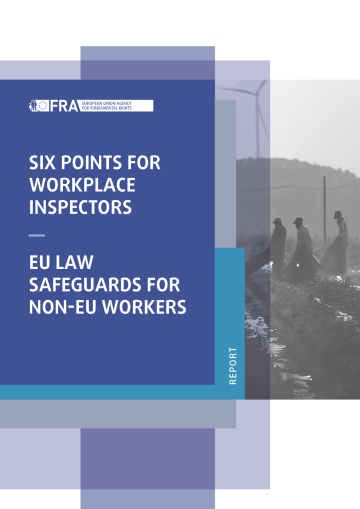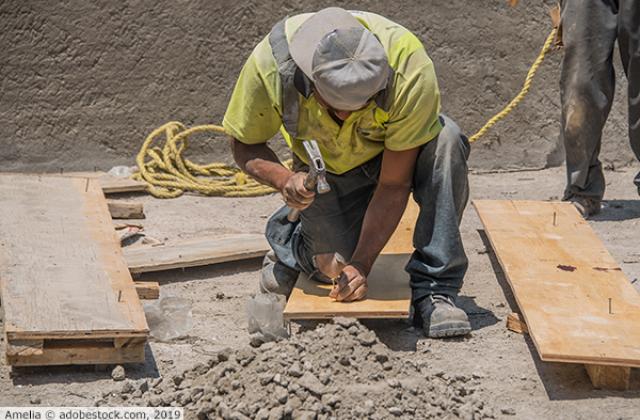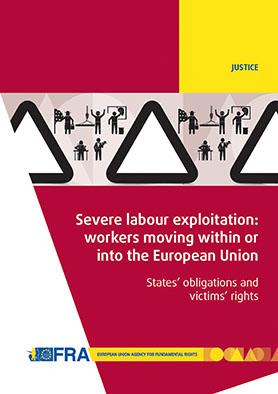EU law lays down different but comparable obligations for different categories of non-EU workers on access to justice. It requires Member States to put in place effective mechanisms for workers to lodge complaints against employers, including those who do so with the support of third parties such as trade unions and non-governmental organisations.
However, available evidence points to a limited use of complaint systems by migrant workers in an irregular situation, as FRA highlighted in its 2021 report on protecting migrants in an irregular situation from labour exploitation. A 2023 study on the posted workers directive and the enforcement directive found that posted non-EU workers may be reluctant to lodge complaints. This is due to their economic dependence on their employer, and their fear of losing their income and residence permits if they lose their job.
Workplace inspectors can play a key role in facilitating access to justice for non-EU workers by:
- informing workers about the right to complain and how to file a complaint with the labour inspectorate or a through a third party;
- addressing language barriers by providing forms to submit complaints in different languages;
- mapping which third parties, such as trade unions and relevant associations, can support migrant workers in filing a complaint, and sharing name and contact details of these organisations with workers;
- establishing structured partnerships with trade unions and civil society organisations;
- informing migrant workers in an irregular situation of any duty labour inspectors have to report them to immigration law enforcement and suggesting safe ways to file a complaint;
- securing the necessary evidence to support a complaint such as employment contracts, pay slips, working time and attendance records and evidence on substandard accommodation;
- verifying if exploited non-EU workers who are in an irregular situation may be entitled to a temporary residence or work permit, informing workers of the availability and limitations of such permits and, if part of the workplace inspector’s mandate, facilitating access to such permits.






